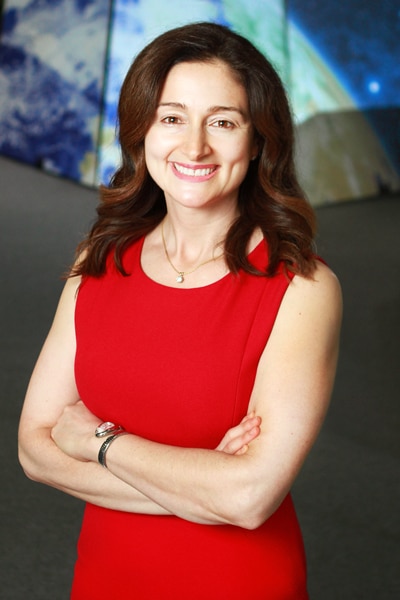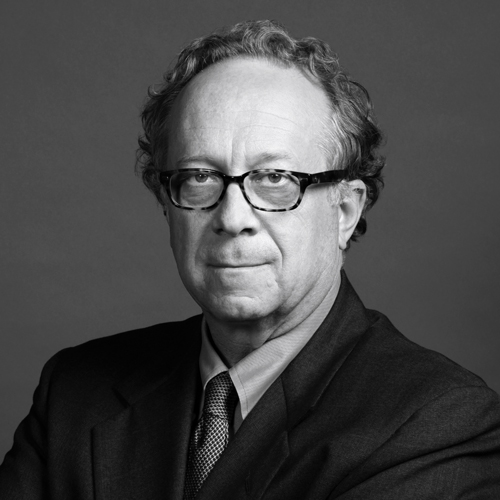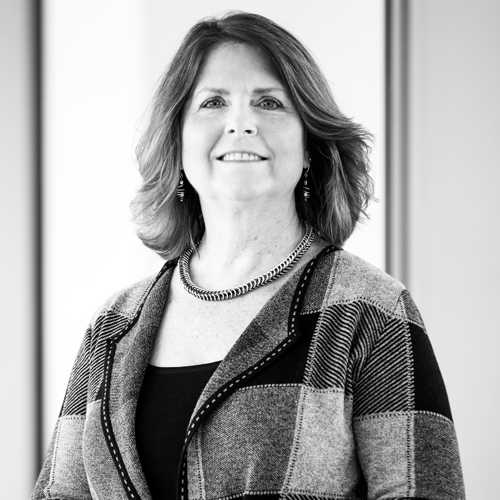
Silicon Valley looks nothing like the mining towns of yore. There are no tumbleweeds, no saloon girls, no gunslingers, and no horses. Yet, the similarities are undeniable. Like the opportunistic towns that sprouted across Colorado, Nevada, and California in the nineteenth century, Silicon Valley is magnetic. It draws people with dreams of striking it rich. They aren’t mining for gold or silver, however; they’re mining for innovation.
Also like the Wild West, Silicon Valley is in some respects a lawless place. Because it lives on the bleeding edge, its products and services often precede the rules, regulations, and legal precedents that eventually govern them.
That makes Catherine Lacavera a sheriff of sorts. As director of IP and litigation at Google, she spends her days defending one of the world’s largest tech companies from competitors and regulators who threaten its creative freedom. Win or lose—she typically wins—her work is pouring the foundation on which future tech law will be built.
“As a lawyer at a tech company, you’re sometimes pushing the law to catch up to technology,” says Lacavera, who joined Google in 2005 as a patent counsel. “In that way, you’re in a unique position to view the law as enabling rather than blocking innovation.”
Litigating new and emerging technology isn’t easy, but Lacavera is suited to the task. Originally from Canada, she has an undergraduate degree in computer engineering, an MBA, a law degree, and an honorary doctorate of law from the University of Toronto. That intersection—between law, business, and science—gives her a unique vantage point from which to view Google’s opportunities and risks. Along with her team of approximately 150 corporate lawyers, she leverages that perspective on a daily basis to argue cases that set, change, and maintain technology’s future trajectory. Two standouts are Viacom v. YouTube and Oracle v. Google, both of which represent significant legal victories for Google.
Viacom v. YouTube: Unleashing User-Generated Content
It’s hard to imagine a world without cat videos, vloggers, citizen journalists, and viral wedding proposals. Yet the online video platforms that so many people count on for inspiration, news, and entertainment almost didn’t exist. That they do is thanks in large part to Google’s legal team, which helped the company acquire internet video pioneer YouTube in 2007. It subsequently became the target of a lawsuit from media conglomerate Viacom.
“About a month after we purchased YouTube, we were sued with a $1 billion lawsuit claiming that YouTube was built on the backs of content providers and was full of copyright-infringing content,” says Lacavera, who staged Google’s defense.
Google asked the court to dismiss the suit, arguing that the “safe harbor” provisions of the Digital Millennium Copyright Act protected the company from copyright-infringement claims. “The Digital Millennium Copyright Act says that you are protected [from copyright-infringement claims] as long as you provide a service that responds quickly to notice and takedown,” Lacavera says. “If a content owner identifies their content, sends you the URL identifying where it is, and represents that they own the content—and you respond quickly by taking it down—you have the so-called ‘safe harbor.’”
The public value of user-generated content, Google argued, outweighed the risks to individual copyright holders. “If you want to create a platform like YouTube, you can’t be held liable for a few bad uses,” Lacavera says. “It would be like saying we need to shut down the highway because there are drunk drivers on it. We don’t want drunk drivers on the highway, either, but that doesn’t mean we shouldn’t have such a platform.”
Seven years after it was filed, Google and Viacom settled the lawsuit, making the world safe again for viral videos. “Defending the application of [the Digital Millennium Copyright Act] to a platform like YouTube is what permitted user-generated content platforms to continue to exist,” Lacavera says. “Otherwise, the potential copyright liability of a class action of the copyright holders of the world would not make such platforms viable. Countless Silicon Valley startups”—including sites such as Facebook and Pinterest—“begin with the premise that they can take advantage of the safe harbor provided by the Digital Millennium Copyright Act. It’s a starting point for tons of innovation on the web.”
Oracle v. Google: Winning the ‘Cell phone Wars’
When Apple introduced the iPhone in 2007, it changed everything. As revolutionary as it was, though, it didn’t change things nearly enough for Google’s tastes, which is why the company introduced its Android mobile operating system that same year.
Android gave consumers a compelling, open-source alternative to the iPhone operating system. However, it also sparked a grandiose legal battle between smartphone manufacturers over their intellectual property. “When industries are nascent, some incumbents will use litigation to block innovation,” Lacavera says. “When we entered the market with a new open-source operating system, it challenged the preexisting landscape of cell phones and smartphones. All of a sudden, we found ourselves involved in a patent war over who owned the cell phone space.”
From 2009 onward, tech companies such as Apple, Samsung, Microsoft, Nokia, Motorola, HTC, and Huawie fired lawsuits at one another. Apple founder Steve Jobs went so far as to declare, “I will spend my last dying breath if I need to, and I will spend every penny of Apple’s $40 billion in the bank to . . . destroy Android, because it’s a stolen product. I’m willing to go thermonuclear war on this.”
For Google, one of the most significant legal challenges came not from Apple but from Oracle, which filed a lawsuit in 2010 claiming that Google had violated seven of its patents by using its Java programming language in Android. Google, meanwhile, argued that its use of Java APIs constituted “fair use” under US copyright law.
“Java . . . was created so that you don’t have to reinvent the wheel,” Lacavera says. “There are libraries of code that programmers can draw on like building blocks, and they can write compatible code that runs across platforms because they’re using the same set of libraries.”
When it released Java in 1995, Sun Microsystems made it free and open to everyone. When Oracle acquired Sun in 2010, however, it decided Java was proprietary. “[Oracle CEO] Larry Ellison testified that Java is open and free for everyone but that its libraries are not,” Lacavera says. “To me, that’s like saying the language is free but the verbs are not. How do you communicate in a language where the verbs are paid?”
Although a jury unanimously sided with Google in 2016, the case is still being decided on appeal. In the meantime, Google feels like the broader cell phone wars have come to a favorable conclusion. “We want peace and freedom to operate,” Lacavera says. “That was our primary objective across all the different litigants we faced. And from my perspective, our mission was accomplished. Android is here to stay.”
Standing Up for Immigration
When Catherine Lacavera, a Canadian, came to the US wanting to be a patent attorney, she applied to practice before the US Patent and Trademark Office (USPTO) but was denied because of her immigration status. She challenged the ruling, but the Federal Circuit Court of Appeals ruled in favor of the USPTO. She petitioned the Supreme Court, but it declined to hear her arguments, which were threefold:
1) USPTO, Lacavera argued, did not have the legal authority to manage her immigration status. It was the domain of US Citizenship and Immigration Services.
2 ) Regarding the rule’s constitutionality, the Federal Circuit applied only a “rational basis review” standard; Lacavera argued it should have applied an “intermediate scrutiny” or “strict scrutiny” standard.
3) USPTO violated her rights to equal protection” under the due process clause of the Fifth Amendment.
Lacavera later got her USPTO registration with a green card. Then, in 2017, Google was one of many companies to sign a brief opposing President Trump’s travel ban. “I feel like this amicus brief was vindication for the rights of immigrants,” she says.
***
White & Case:
“Catherine Lacavera brings intelligence, energy, and force of will to the litigation challenges of one of the world’s most innovative companies. White & Case is a proud member of the team and celebrates Catherine’s achievements.”
—Greg Spak, Partner


